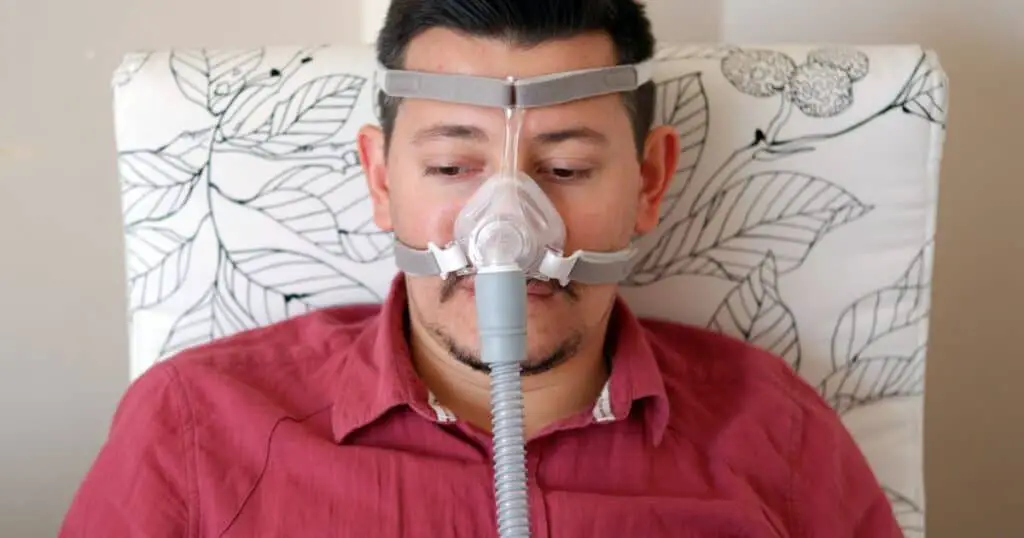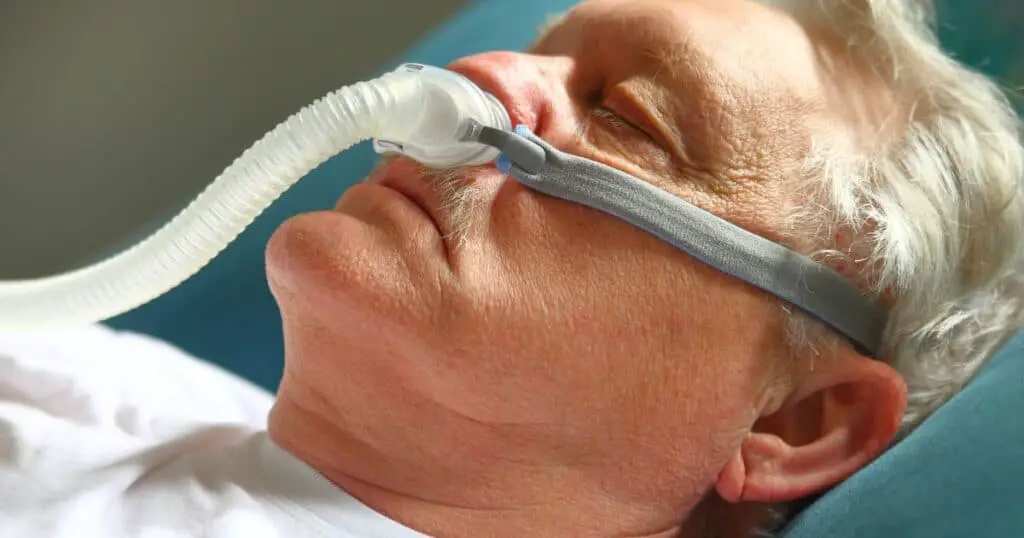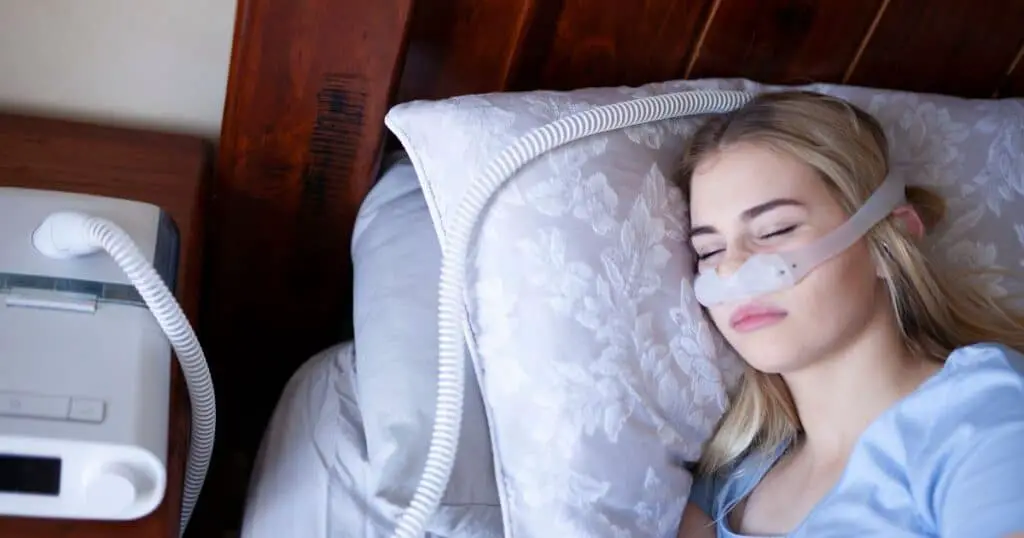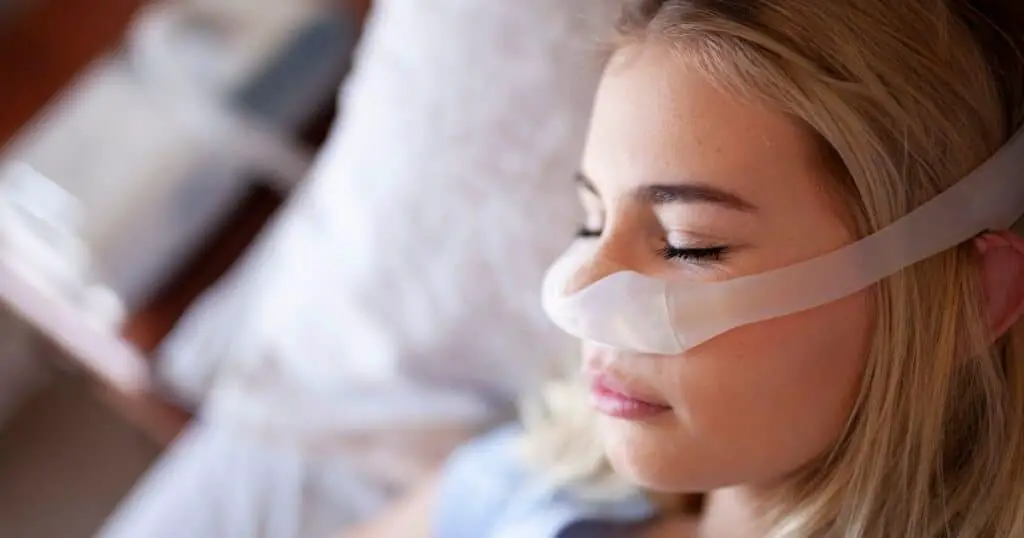Overview of CPAP masks for sleep apnea treatment
Sleep apnea is a common sleep disorder that affects millions of people worldwide. It is characterized by interrupted breathing during sleep, leading to poor sleep quality and a range of health issues. Continuous Positive Airway Pressure (CPAP) therapy is the gold standard treatment for sleep apnea, and CPAP masks are essential components of this therapy.
CPAP masks are designed to deliver a constant stream of pressurized air to the airways, keeping them open and preventing the occurrence of apnea episodes. They come in various styles and sizes to accommodate different comfort preferences and facial structures. Two popular options are nasal CPAP masks and nasal pillows, each with its own unique features and benefits.
In this article, we will delve into the world of CPAP masks, specifically focusing on nasal CPAP masks and nasal pillows. We will explore their definitions, functions, benefits, and drawbacks. Additionally, we will discuss the suitable candidates for each mask style and provide insights on choosing the right style for your personal needs.
So, whether you are new to CPAP therapy or considering switching your mask style, this comprehensive guide will equip you with the knowledge to make an informed decision. Let’s dive into the fascinating world of nasal CPAP masks and nasal pillows!
Nasal CPAP Masks

Definition and Function
Nasal CPAP masks are a popular choice for individuals seeking effective treatment for sleep apnea. These masks are specifically designed to deliver continuous positive airway pressure (CPAP) therapy to patients by ensuring a steady flow of pressurized air into the nasal passages. By maintaining an open airway during sleep, these masks help prevent the interruptions in breathing that are characteristic of sleep apnea.
Benefits and Drawbacks
Nasal CPAP masks offer several benefits that make them a favorable option for many individuals. First and foremost, they provide a secure and reliable fit, thanks to their design that covers only the nose. This ensures that the pressurized air is effectively delivered to the airway, promoting uninterrupted breathing throughout the night. Additionally, these masks are known for their quiet operation, allowing users and their bed partners to enjoy a peaceful sleep environment.
However, like any other medical device, nasal CPAP masks have their drawbacks as well. Some users may find it challenging to adjust to the sensation of wearing a mask on their face during sleep. Additionally, nasal CPAP masks may feel more claustrophobic to some people. Also, for those who like to watch television when first applying their nasal CPAP it may be difficult to wear eyeglasses . It is essential to consider these factors when choosing the right CPAP mask style.
Suitable Candidates

Nasal CPAP masks are typically recommended for individuals who breathe mainly through their nose during sleep. They are particularly beneficial for those with moderate to severe sleep apnea, as the design of these masks effectively targets the nasal airway, ensuring optimal therapy. Furthermore, individuals who experience nasal congestion or allergies may find relief with these masks, as they help to open up the nasal passages and facilitate easier breathing.
It is worth noting that the suitability of nasal CPAP masks may vary from person to person. Factors such as facial structure, personal comfort, and individual preferences play a crucial role in determining whether this mask style is the right fit. Consulting with a healthcare provider or sleep specialist is highly recommended to ensure the most appropriate choice is made based on individual needs.
Now that we have explored the features and benefits of nasal CPAP masks, let’s delve into another popular option: nasal pillows.
Nasal Pillows

Definition and Function
Nasal pillows, also known as nasal prongs, are a popular style of CPAP mask used for treating sleep apnea. These masks are designed to deliver a constant flow of pressurized air through small, soft nasal inserts that fit directly into the nostrils. They are lightweight and consist of a flexible tube that connects to the CPAP machine, ensuring a steady supply of air to keep the airway open during sleep.
The function of nasal pillows is to provide a comfortable and effective means of delivering the prescribed air pressure to the user. The design allows for minimal contact with the face, making it an ideal choice for those who feel claustrophobic or experience skin irritation from traditional masks. By targeting the nostrils, nasal pillows provide a direct airflow that can alleviate obstructions and reduce snoring.
Benefits and Drawbacks
Nasal pillows offer several advantages that make them a preferred option for many CPAP users. Firstly, their minimalistic design allows for a wider field of vision, enabling reading, watching TV, or wearing glasses comfortably during use. Additionally, the reduced facial contact minimizes the risk of pressure ulcers and mask leaks, enhancing overall comfort.
Another benefit of nasal pillows is their compatibility with different sleep positions. Side sleepers, in particular, find this style of mask beneficial as it provides a secure fit and allows for unrestricted movement. Furthermore, the open design reduces the likelihood of air leakage, ensuring more efficient therapy and quieter operation.
However, it’s important to consider the potential drawbacks as well. Some users may experience nasal dryness or discomfort due to the direct airflow into the nostrils. This can be mitigated by using a heated humidifier or nasal saline spray to moisturize the nasal passages. Additionally, individuals with nasal congestion, allergies, or a deviated septum may find nasal pillows less suitable, as the direct pressure may exacerbate these conditions.
Suitable Candidates
Nasal pillows are an excellent choice for individuals who value comfort, freedom of movement, and a less intrusive mask experience. They are particularly well-suited for:
- Side sleepers: Nasal pillows accommodate different sleep positions, allowing for uninterrupted rest.
- Claustrophobic individuals: The minimal design and reduced facial contact alleviate feelings of claustrophobia.
- Active sleepers: The secure fit of nasal pillows ensures that the mask stays in place, even during movement.
- Users with facial hair: The lack of a full face seal makes nasal pillows a viable option for those with beards or mustaches.
- Individuals who wear glasses: The unobstructed field of vision provided by nasal pillows allows for comfortable use with eyewear.
Before making a decision, it is essential to consult with a healthcare provider or sleep specialist to determine the most appropriate mask style based on individual needs and preferences.
Now that we’ve explored the benefits and considerations of nasal pillows, let’s delve into the factors to consider when choosing the right style of CPAP mask.
Note: If you’re interested in reading more about nasal pillows or other CPAP mask options, check out our article on nasal pillows CPAP masks. Additionally, if you’re specifically looking for recommendations, we have a comprehensive list of the best nasal CPAP masks available on the market.
Choosing the Right Style
When it comes to selecting the right style of CPAP mask for your sleep apnea treatment, there are several important factors to consider. Each individual has unique needs and preferences, and finding the perfect fit is crucial for a comfortable and effective therapy experience. This section will explore the key considerations that should be taken into account when choosing between nasal CPAP masks and nasal pillows.
Considerations for Comfort
Comfort is paramount when it comes to using a CPAP mask for sleep apnea treatment. After all, you’ll be wearing it every night for hours on end. Nasal CPAP masks and nasal pillows both have their own unique comfort features.
Nasal CPAP masks, as the name suggests, cover the nose and are secured in place with adjustable straps. They offer a wider coverage area, which can be beneficial for individuals who tend to breathe through their mouth during sleep or those who require higher pressures to maintain airway stability. The cushioning materials used in nasal CPAP masks provide a soft and gentle seal, ensuring a comfortable fit throughout the night.
On the other hand, nasal pillows are a popular choice for individuals who prefer a more minimalistic design. Instead of covering the entire nose, nasal pillows consist of small, soft inserts that fit directly into the nostrils. This style of mask allows for a greater field of vision and is generally less obtrusive, making it an excellent option for individuals who feel claustrophobic or experience discomfort with a larger mask.
Ultimately, the choice between nasal CPAP masks and nasal pillows boils down to personal comfort preferences. Some individuals find the secure fit and broader coverage of nasal CPAP masks more comfortable, while others prefer the lightweight and unobtrusive nature of nasal pillows.
Compatibility with Sleep Patterns
Another important consideration when choosing a CPAP mask style is its compatibility with your sleep patterns. If you are a back sleeper or tend to change positions frequently throughout the night, a nasal CPAP mask might be the better choice. These masks are designed to stay securely in place, even when you shift positions during sleep. The adjustable straps ensure a snug fit, preventing air leaks and maintaining therapy effectiveness.

On the other hand, if you are a side sleeper, nasal pillows may be the more suitable option. The smaller size and minimalist design of nasal pillows make them less likely to be dislodged when lying on your side. Additionally, they allow for a greater range of motion, enabling you to find a comfortable sleeping position without compromising the mask’s seal.
Individual Preferences
Individual preferences play a significant role in determining the right CPAP mask style for you. Some individuals may find the sensation of having their nose covered by a nasal CPAP mask comforting, while others may prefer the freedom and openness offered by nasal pillows. It’s important to consider your own comfort level and preferences when making this decision.
To make an informed choice, it may be helpful to try out different mask styles and see which one feels the most comfortable and natural for you. Many CPAP providers offer mask fitting services, allowing you to try on different styles and sizes before making a final decision.
Consultation with a Healthcare Provider
While considering the various factors mentioned above, it is always advisable to seek guidance from a healthcare provider specializing in sleep apnea treatment. They can provide valuable insights based on your individual needs and help you make an informed decision. Consulting with a healthcare provider will ensure that the chosen CPAP mask style is suitable for your specific condition and sleep apnea therapy requirements.
By carefully considering comfort, compatibility with sleep patterns, individual preferences, and seeking professional advice, you can confidently choose the right style of CPAP mask that will optimize your sleep apnea treatment journey.
If you want to learn more about different CPAP mask options or read reviews on nasal CPAP masks and nasal pillows, check out our cpap mask options and nasal cpap mask reviews articles.
Frequently Asked Questions
Now that we have explored the differences between nasal CPAP masks and nasal pillows, you may have some burning questions about these sleep apnea treatment options. In this section, we will address some common queries to help you make an informed decision.
Can I switch between nasal CPAP masks and nasal pillows?
Absolutely! One of the great advantages of using a CPAP machine is the ability to switch between different mask styles based on your needs and preferences. Nasal CPAP masks and nasal pillows offer distinct benefits, and some individuals find that they prefer one style over the other. However, it’s important to consult with your healthcare provider before making any changes to your current treatment plan. They can guide you on the most suitable options and ensure that your therapy remains effective.
How do I clean and maintain these masks?
Maintaining proper hygiene is crucial when it comes to your CPAP equipment. Both nasal CPAP masks and nasal pillows require regular cleaning to ensure optimal performance and prevent the buildup of bacteria or allergens. The cleaning process typically involves gentle handwashing with mild soap and warm water. Be sure to follow the manufacturer’s instructions for cleaning and disinfecting your specific mask model. Additionally, it is recommended to replace the mask and its components on a regular basis to ensure hygiene and functionality. By keeping your mask clean and well-maintained, you can enjoy a comfortable and safe sleep apnea treatment experience.
Can I use nasal pillows if I have allergies or a deviated septum?
For patients with allergies and/or a deviated septum nasal pillows may not be the best option as these conditions can restrict the airflow through the nose. Patients with these conditions may have more success with a full face mask that covers the mouth.
However, it’s always advisable to consult with your healthcare provider to determine the best course of action for your specific situation. They can assess your condition and make personalized recommendations to ensure effective and comfortable treatment.
Interested in learning more about CPAP masks? Check out our cpap mask options and explore our comprehensive nasal CPAP mask reviews for detailed insights. If you’re a side sleeper looking for the perfect fit, don’t miss our guide on the best nasal CPAP masks for side sleepers.
Conclusion
In conclusion, when it comes to choosing the right style of CPAP mask for sleep apnea treatment, there are two main options to consider: nasal CPAP masks and nasal pillows. Both styles have their own unique features, benefits, and drawbacks.
Nasal CPAP masks, as the name suggests, cover the nose area and provide a secure fit. The design of nasal CPAP masks ensures that the pressurized air is effectively delivered to the nasal passages, promoting a continuous flow of air and reducing the risk of obstructions. However, some users may find the mask to be bulky and restrictive, making it less comfortable for long-term use.
On the other hand, nasal pillows offer a more minimalistic and lightweight alternative. These small, soft inserts are placed directly into the nostrils, providing a gentle seal. Nasal pillows are an excellent choice for individuals who prefer a less obtrusive mask and for those who experience claustrophobia or discomfort with traditional masks. They also allow for a wider field of vision, making them ideal for individuals who enjoy reading or watching TV before bed. However, it’s important to note that nasal pillows may not be suitable for individuals who require higher pressure settings or those who breathe through their mouth during sleep.
When it comes to choosing the right style, several factors should be considered. Comfort is paramount, as wearing a CPAP mask for several hours every night requires a design that feels natural and non-restrictive. Compatibility with sleep patterns is also crucial, as some individuals may find it easier to sleep on their side with a certain style of mask. Additionally, individual preferences play a significant role, as what works best for one person may not necessarily work for another. It is always advisable to consult with a healthcare provider who can provide personalized recommendations based on specific needs and preferences.
To wrap up, both nasal CPAP masks and nasal pillows offer effective solutions for sleep apnea treatment. The decision ultimately depends on individual preferences, comfort, and compatibility. It’s important to explore and understand the options available, considering factors such as mask design, pressure requirements, and personal comfort. By finding the right style of CPAP mask, individuals can improve their sleep quality, alleviate symptoms of sleep apnea, and ultimately enhance their overall well-being.
For more information on CPAP mask options, nasal CPAP mask reviews, and the best nasal CPAP masks for side sleepers, be sure to check out cpaphackers.com.

Damon Wiseley is a Registered Respiratory Therapist and Certified Pulmonary Function Technologist.
